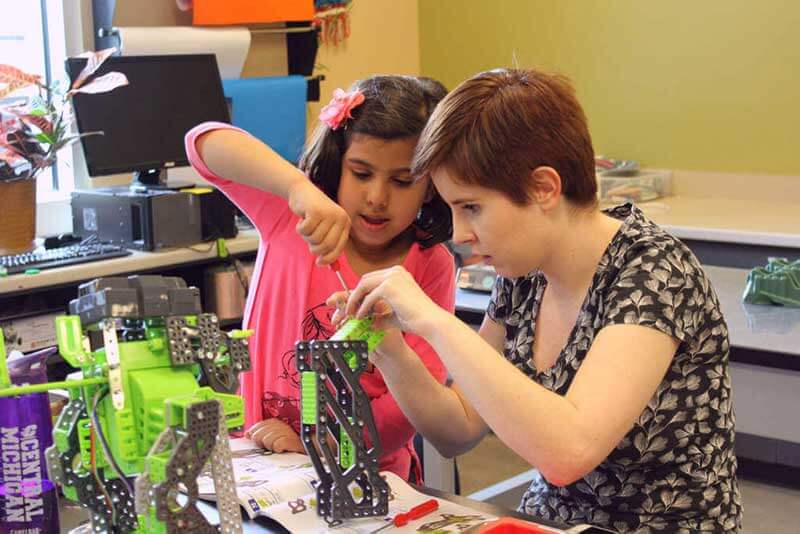- What’s wrong with STEM education?
- We need engineers and scientists who do more than ‘just’ innovate
- STEAM is a solution to a problem that doesn’t exist
- STEM curricula should be centered on the humanities and arts
The tech industry has suffered something of a black eye recently, and the last year or so has seen giant after giant lurching into scandal. Some of these are epic embarrassments, like the apparently racist algorithms behind the iPhone X’s facial recognition system. Others strike at the very heart of our faith in the legal system, like the case of algorithm-derived injustice in Wisconsin v. Loomis. Then there’s the even more broad-reaching, like Cambridge Analytica’s use of Facebook data to skew election results. Still others illustrate a level of moral paralysis that’s hard to understand: just last week, Twitter was debating whether there was a technical solution to recognising dehumanising speech, and whether far-right conspiracy theorist Alex Jones had crossed that line.
On their own, these crises are bad enough. Collectively, they’re a devastating picture of society’s state of ethics and technology.
What’s wrong with STEM education?
The common thread that unites these problems isn’t poor engineering, programming, science, or mathematics. Instead, these failures are linked by shocking ignorance of history, ethics, society, and politics. These are subjects that are, at the best of times, at the margins of STEM (science, technology, engineering, and math) education. And it makes sense to ask whether these developments are an effect of the way we miseducate people in high-tech fields. Are we teaching tomorrow’s scientists and engineers to act before they think, to put innovation before ideals? Are we teaching them to solve problems, but not ask if the solution is worse for society than what it fixes? Are we teaching them to think in terms of algorithms and maths and to ignore the human cost of these calculations?

As much as we’d like to point our fingers at them for creating a problem, we need to consider just how culpable we all are in creating a culture of education that’s gotten us to where we are. We also need to ask what we might do to reinvigorate STEM with the kind of humanity that helps people as it solves problems.
We need engineers and scientists who do more than ‘just’ innovate
As Richard Lachman, an associate professor of digital media in the RTA School of Media at Ryerson University, reasons, “Graduates of science and engineering programs understandably chase positions in start-ups or high-salaried finance jobs. Their knowledge of algorithmic development, data analysis or simply structured scientific thinking may net them fantastic jobs at a variety of private-sector employers.” But he notes that this high-paid work – “optimizing microseconds out of their high-frequency trading algorithms, or devising routing-algorithms for drone-delivered burritos” – while economically valuable, doesn’t contribute meaning to the lives of millions.
That’s an important point. But he has an even sharper conclusion: when these technological questions press on issues of ethics, society, and politics – from genetic engineering, to data sharing, to algorithm-derived injustice, to questions of what constitutes dehumanising speech – we need more than scientific solutions and engineered answers.
STEAM is a solution to a problem that doesn’t exist
Adding a capital ‘A’ to STEM is one answer. By including the arts, broadly understood, to create STEAM education, it’s hoped that teachers can encourage their students to make connections between concepts and solving problems in new and exciting ways. That’s a great idea, but it’s really a solution to a problem that doesn’t exist, the right idea driven by a broken sense of what’s wrong.
We’re not experiencing a crisis of critical problem solving, and innovation isn’t at risk. Instead, the problem’s a lot deeper than that, and much harder to grasp. Critical thinking isn’t just a question of finding a workable answer – it involves thinking about problems, seeing them in context, and moving beyond utility. Ultimately, we need engineers, programmers, and scientists who think holistically, not more practically, who see societal trends as easily as they do technical answers. We need STEM leaders who are as conversant with Aristotle and the rise of fascism in the 20th century as they are with Python and the second law of thermodynamics.
STEM curricula should be centered on the humanities and arts
“Studying a humanities field involves moving beyond the search for the immediate and pragmatic; it opens one to the examination of the entirety of the human condition and encourages one to grapple with complex moral issues ever-present in life,” writes Valerie Strauss for The Washington Post. Now, this in no sense guarantees goodness; one can have the best education imaginable and still be heartless, manipulative, and cruel.
But as Lachman suggests, “we need our educational system to engage students with issues of ethics and responsibility in science and technology. We should treat required arts and humanities courses not as some vague attempt to ‘broaden minds’ but rather as a necessary discussion of morals, values, ethics and responsibility”. That means a lot more than adding a letter to a tired acronym, and it involves a complete change in what it means to educate tomorrow’s technical minds.
The goal of this change isn’t to improve problem solving. It’s to nurture a generation of scientists and engineers who can look at a room full of white, male faces and realise – without being told – that programming a facial recognition system to differentiate people using that skewed sample of humanity is a bad idea. It’s to teach the future that black-box algorithms, whose workings are invisible to anyone but the programmer, are an awful idea in the courtroom. It’s to ensure that our children think more carefully about compromising democratic elections, enabling hate speech, and supporting prejudice, asking “Why?” and “To what end?” and “With what social cost?” rather than merely “How?”
That’s a future we all want, and it’s time to take education reform seriously.
Share via:


